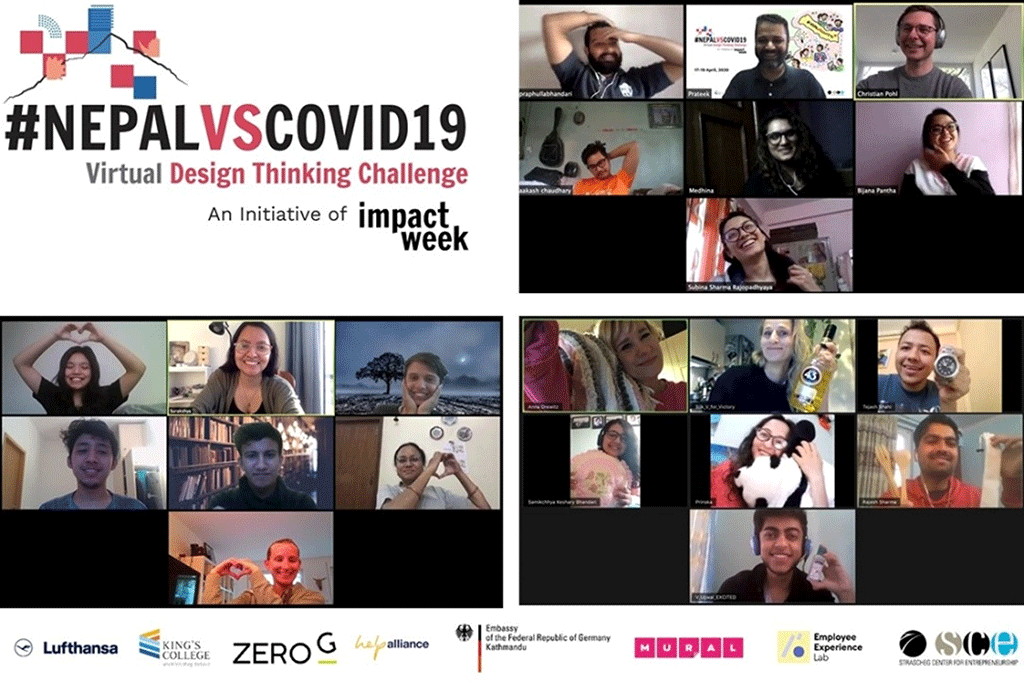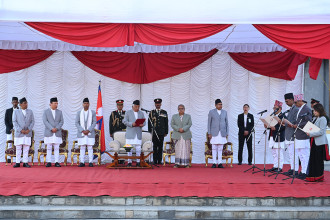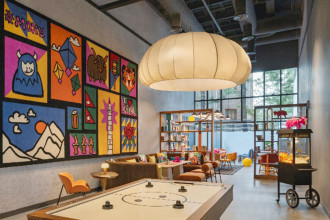
Almost 100 volunteers around the world assembled virtually over the weekend to come up with solutions to the challenges arising in Nepal due to the Coronavirus outbreak. In just 60 hours, spread out over three days, 54 Nepali young professionals and students living all over the globe were guided through the design thinking process by experts from Germany, Turkey, Belgium, Nepal and India. The challenge took place in an entirely virtual environment, using tools such as Zoom, Mural, Slack and the Google suite.
The first ever Virtual Design Thinking Challenge was hosted collaboratively by the award-winning German program ‘Impact Week’ and King’s College, and supported by the Lufthansa Group, the German Embassy in Kathmandu, remote collaboration platform MURAL, Berlin-based EX Lab and independent innovation experts.
The challenges addressed were focused on the four topic areas: public health, business, education, and community. Overall, there were ten final solutions presented. The winners of the challenge were Team Delta Warriors who came up with the idea of a program called ‘Corona Warriors’ which focuses on the prevention of COVID-19 spread in rural areas of Nepal. Through this program, medical students would be trained and deployed to villages to help contain the spread of the virus, both tackling the issues of the spread of COVID-19 and helping medical students, who are currently unable to practice medicine, to gain experience working in the field, as well as financial support, health insurance and networking opportunities.
Highlighting the need as well as opportunity of social innovation in a situation of crisis like this, Narottam Aryal, the President of King’s College said, “This event might change the definition of how design thinking and global collaboration can actually be executed in the future to collaboratively find solutions to deal with the multidimensional adverse effects of the pandemic in the country.”
Established in 2015, Impact Week is a non-profit program that unites people from a variety of countries and organisations. It promotes innovative and entrepreneurial skill progression in emerging economies as a foundation for sustainable growth, by establishing sustainable business models using Design Thinking. It equips the next generation for employment, to become inspiring leaders – successful agripreneurs, entrepreneurs and game-changers, regardless of their field or level of expertise.





-1765524551.jpeg)